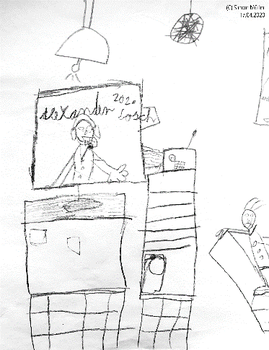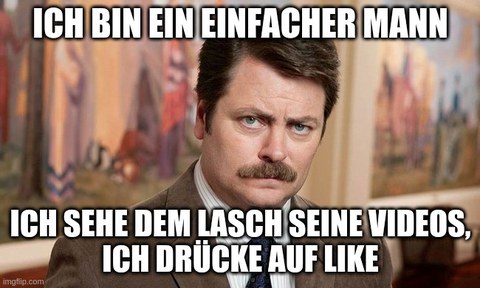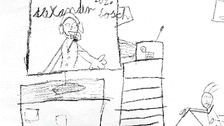Blended Learning im digitalen Semester in der germanistischen Sprachwissenschaft: Prof. Dr. Alexander Lasch (#AL1)
Format
In diesem Semester sind wir mit Vorlesungen und Seminaren in den digitalen Raum gewechselt - Lehrende und Studierende. Zentral ist es in diesen Kontexten, 'Studierende zu digital unterstützten interaktiven Lernaktivitäten anzuregen' (Nationaler Bildungsbericht 2020). Grundsätze waren daher: Alle Inhalte werden offen zur Verfügung gestellt und sind als OER frei zugänglich. Asynchrone Formate haben ggü. Liveformaten Vorrang. Synchron werden zur Kommunikation Messengergruppen (MATRIX) eingesetzt, erst sekundär Videokonferenzlösungen. Der thematische Input wird zugunsten gemeinsamer Arbeitsphasen reduziert. Das trifft nur zum Teil auf die Vorlesung zu, aber besonders auf die Seminare.
Um Studierenden mit Nebenerwerb, Angehörigen in der Betreuung oder kleinen bzw. schulpflichtigen Kindern im Grundschulalter den direkten Kontakt zu ermöglichen, wurde eine Online-Abendsprechstunde angeboten (Donnerstag, 22.00-23.00 Uhr).
Das digitale Semester stellte uns vor die Herausforderung, alle Veranstaltungsformate mit einem Schlag in blended learning-Formate zu überführen.
Schlagworte
#BlendedLearning, #Kollaboration, #Digitalität, #Linguistik

© Alexander Lasch

© Alexander Lasch

© Alexander Lasch
Beschreibung
Thematische Vorlesung
In der Vorlesung kombinierte ich dafür eine asynchrone Aufzeichnung, die ich mit den Studierenden als „Youtube-Premiere“ gemeinsam an einem festen Termin schaute und in einer MATRIX-Gruppe diskutierte. Nach dem asynchronen Input (ca. 40 Minuten) diskutierten wir gemeinsam tagesaktuelle Themen, die im Kontext der Vorlesung standen. Alle Materialien sind als OER frei verfügbar über gls-dresden.de. Die thematischen Vorlesungen werden seit dem SoSe 2018 gestreamt und als Aufzeichnung zur Verfügung gestellt (http://youtube.com/AlexanderLasch). Sie sind als Podcast verfügbar für Spotify (http://bit.ly/GLS_Vorlesungen_Spotify), CastBox (http://bit.ly/GLS_Vorlesungen_CastBox) sowie iTunes (http://bit.ly/GLS_Vorlesungen_iTunes) und damit auch für PocketCasts (https://pca.st/66u1). Für die Vorlesung ist anonymes Feedback jederzeit erwünscht (https://bit.ly/Feedback_ALasch) und in der Messengergruppe jederzeit möglich:
Die Klausur zur Vorlesung wurde als Open Book Exam realisiert, bei dem alle Studierenden einen Essay verfassten – mit Wahl eigener Schwerpunkte – und durften dafür alle ihnen zur Verfügung stehen Medien nutzen.
Seminare
Seminare folgen einer neuen und auf die Situation angepassten Struktur. 1) Inputphase: In asynchronen thematischen Inputvideos wird Wissen (http://youtube.com/AlexanderLasch) vermittelt, Aktivierung der Studierenden erfolgt über konkrete Aufgabenstellungen und Arbeitshinweise in der jeweiligen MATRIX-Gruppe zum Seminar. Daneben werden technische Bedarfe und Probleme ermittelt, die nach und nach erfüllt bzw. abgestellt werden. 2) Erarbeitungsphase: Die Studierenden erarbeiten in Kleingruppen ihre Themen. Parallel werden interessierte Studierende geschult in Audio- und Videoproduktion, Hosting von Audio- und Videodaten und im Hinblick auf rechtliche Fragen bei der Präsentation medialer Inhalte. Studierende definieren also eigene Lernziele, die auch das Einüben in Technik und Möglichkeiten der Bereitstellung von eigenen Präsentationen als OER einschließen. 3) Auswertungsphase: Studierende werden dabei unterstützt, ihre Präsentationen in je verschiedenen medialen Realisierungsformen, die sich auch an den Möglichkeiten der Studierenden orientieren müssen, zu veröffentlichen und mit dem Seminar zu diskutieren. Ihre Ergebnisse werden nach Freigabe öffentlich präsentiert - als Studierendenbeiträge auf dem Blog "Linguistische Werkstattberichte", lingdrafts. Damit erfahren Studierende nicht nur eine besondere Wertschätzung ihrer Leistung; sie werden gleichzeitig und ganz praktisch in eine Wissenschaftskultur der Digitalität eingeführt, die u.a. an den Prinzipien Freigebigkeit, Vernetztheit, Sichtbarkeit, Transparenz, gemeinsame Ziel- und Wertorientierung ausgerichtet ist. Es sind kollaborativ Präsentationsvideos, Präsentationen mit Audiokommentar, Podcasts, Borschuren, überarbeitete Kinderbücher usw. entstanden. Alle Inhalte sind als OER verfügbar unter der Lizenz CC BY 4.0 International.
Ansprechpartner
Abstimmungskennung
#AL1



